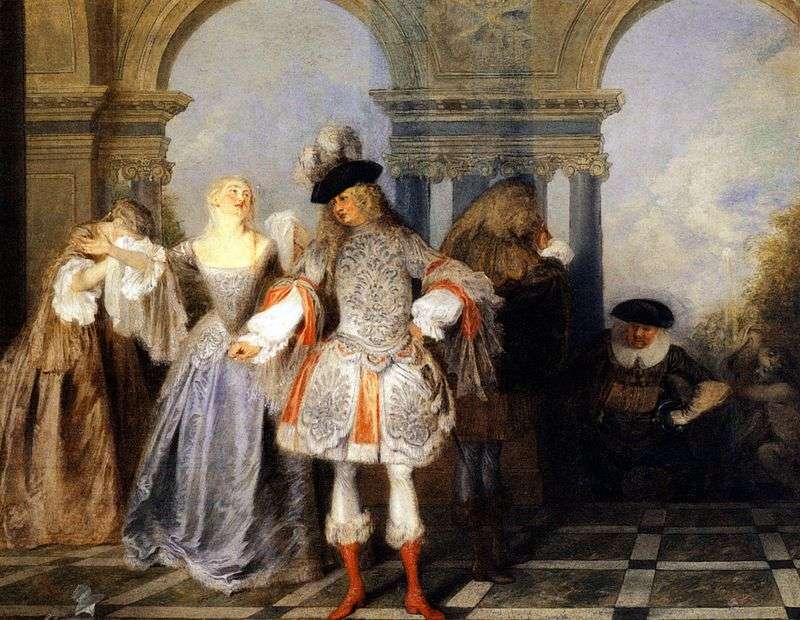
Painting of the French painter Antoine Watteau “The Scene of the French Comedy” or “The actors of the French Comedy.” The size of the painting is 57 x 73 cm, canvas, oil. The contemporary exemplary French scene – Comée e die Die Fran Française aise or Théâ € “tre-Fran &; ais” – was founded by Louis XIV in 1680; it was formed from the combination of three troupes – the company de Bourgogne, the company of Moliere, and finally the troupe du Marais; The goal of the association was to give actors the opportunity to improve more and more.
The new theater “Comedie Francaise” was given the privilege of putting on tragedies and comedies and was given an annual subsidy of 12,000 francs; the number of actors was precisely determined; regulated the management of the theater. From the mix of the repertoire of Corneille and Racine with Moliere’s repertoire, the French classical scene was thus created. The actors were called co-orde diens ordinaires du roi.
In 1689, the troupe became known as Th &; eacute; tre de la Comée, die-Fran &; cise aise. At first, this theater could fight the competition of street performances only with the help of the prohibitive measures of the Parisian authorities.
The French classical scene of the beginning of the XVIII century continued the manner of comedies of the end of the XVII century. Alienism, grotesque, buffoonery and farce, quibble, parody and a number of other means played the role of comic and comic receptions of the French stage. In it, however, the pictures of the decaying society of old France break even more than Moliere’s.
The best writers of comedies of the XVIII century – Renyar and Dankurt. The outstanding play of the first “Player” is too strewn with witty phrases. Dankurt also sharpens, to the detriment of the typical character of his characters, but the social character of his plays gives them particular interest; such are: “Fashion Knight”, “Intrigante”, “Fashionable bourgeois”.
Much higher than these writers Lesage, who created the “Türkar”. From the comedies of Voltaire’s best “Prodigal Son.” Marivo is interesting in that he portrayed the modern struggle of classes, although the rule of unity tends to gravitate over his talent. His best plays: “The game of love and chance,” “Deceitful confessions,” “Village heir.” Detusch, who wrote The Gordec, and Piron, who wrote Metromania, is finished by a long series of writers of classical French comedy.
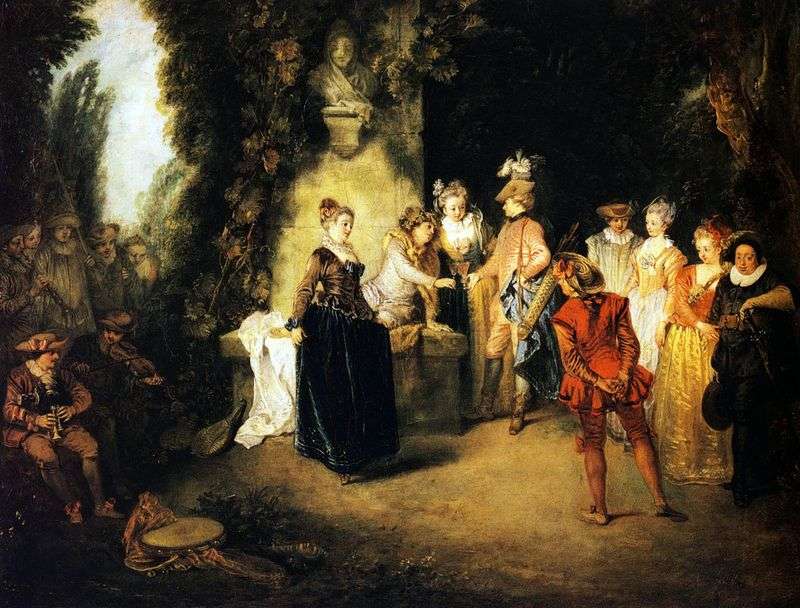 French Comedy by Jean Antoine Watteau
French Comedy by Jean Antoine Watteau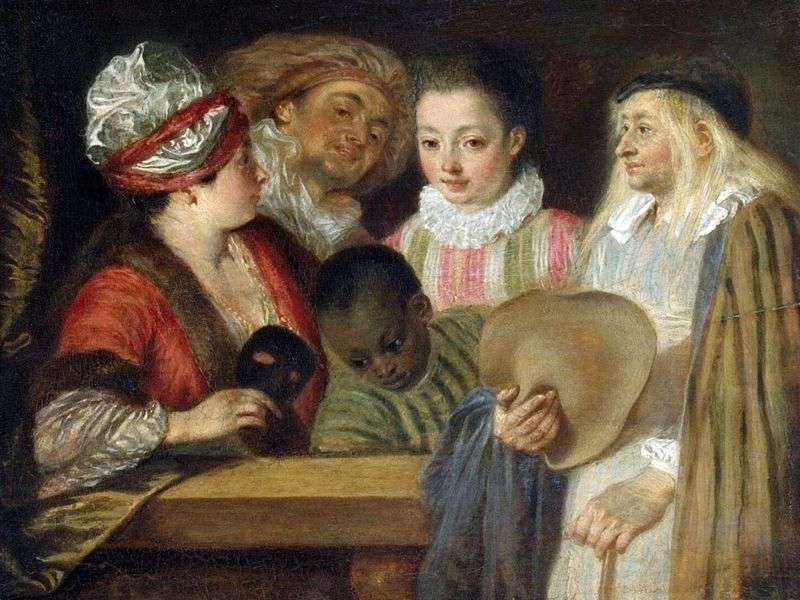 Actors of the French comedy (Return from the ball, Masquerade) by Jean Antoine Watteau
Actors of the French comedy (Return from the ball, Masquerade) by Jean Antoine Watteau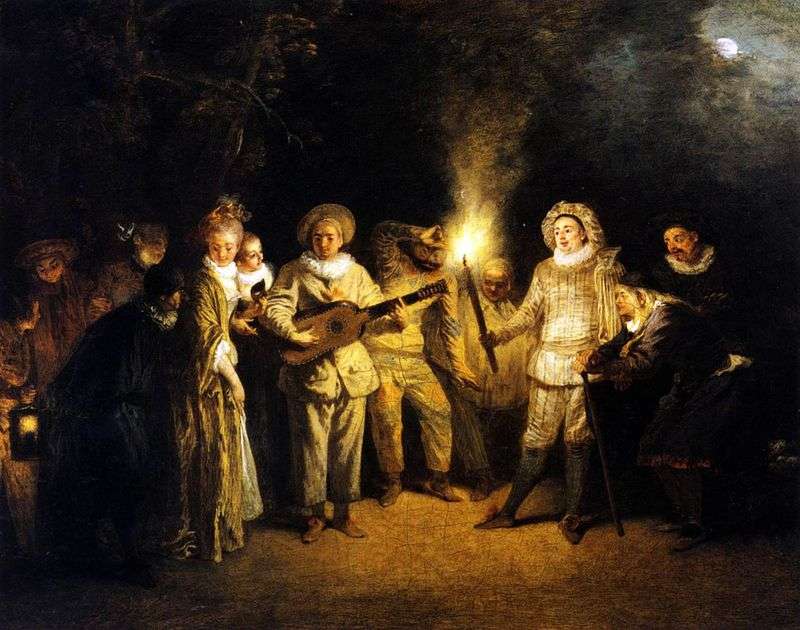 Italian comedy del arte by Jean Antoine Watteau
Italian comedy del arte by Jean Antoine Watteau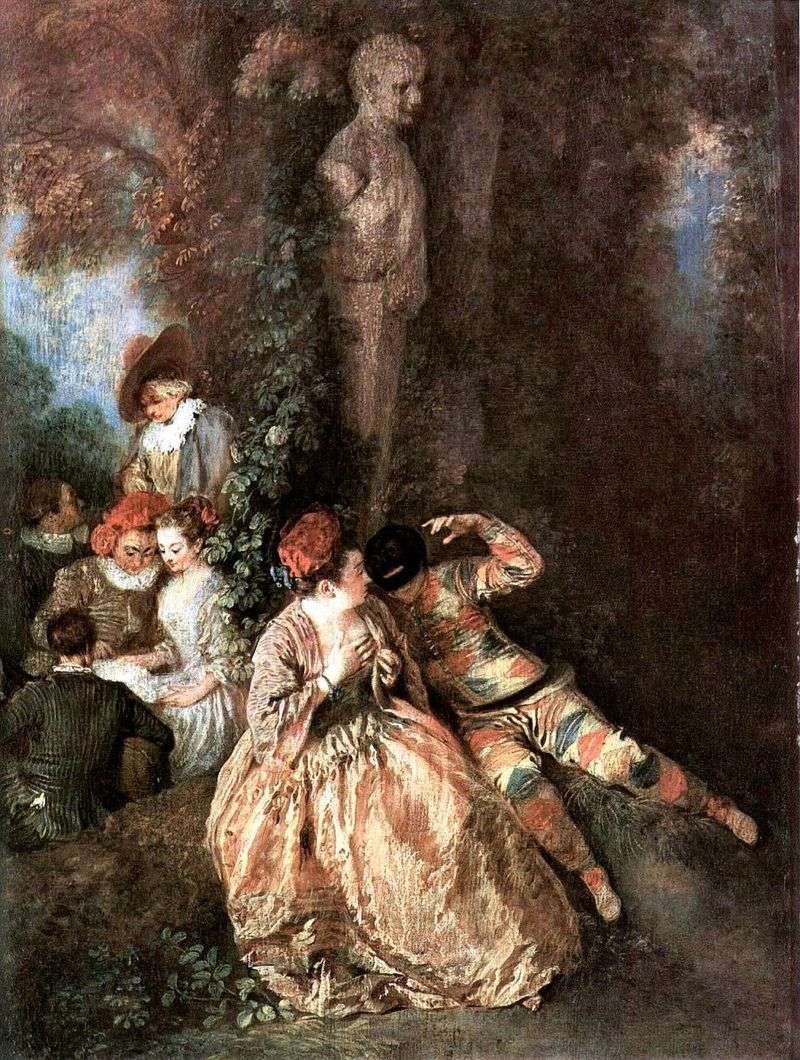 Gallant Harlequin and Colombina by Jean Antoine Watteau
Gallant Harlequin and Colombina by Jean Antoine Watteau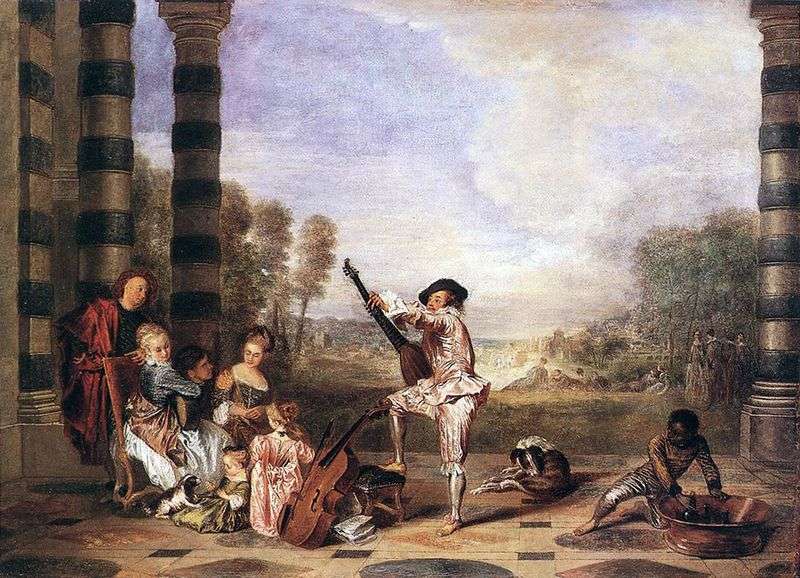 Musical party in the summer theater by Jean Antoine Watteau
Musical party in the summer theater by Jean Antoine Watteau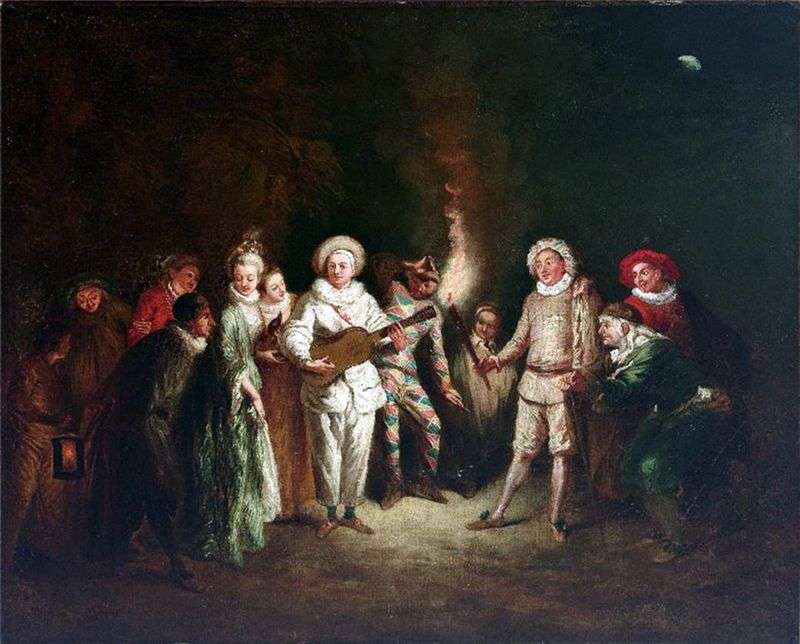 Scene in the Italian Theater by Jean Antoine Watteau
Scene in the Italian Theater by Jean Antoine Watteau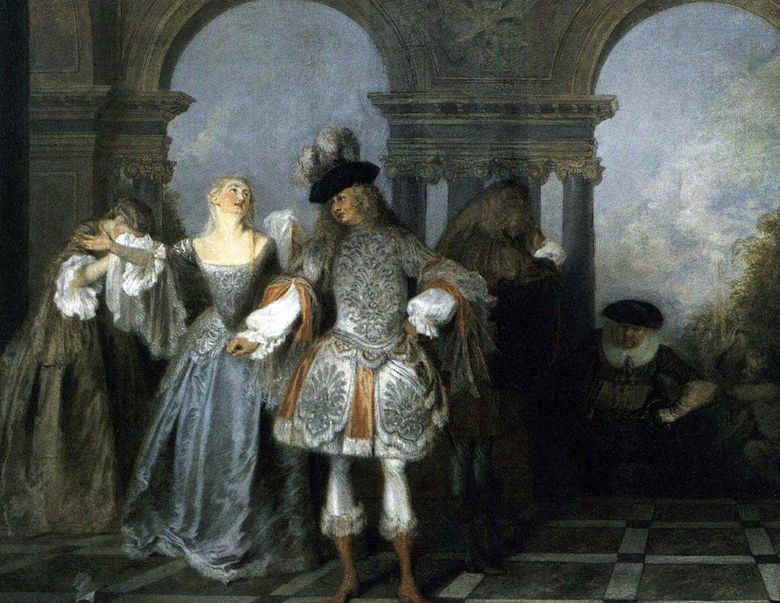 Scène de la comédie française – Jean Antoine Watteau
Scène de la comédie française – Jean Antoine Watteau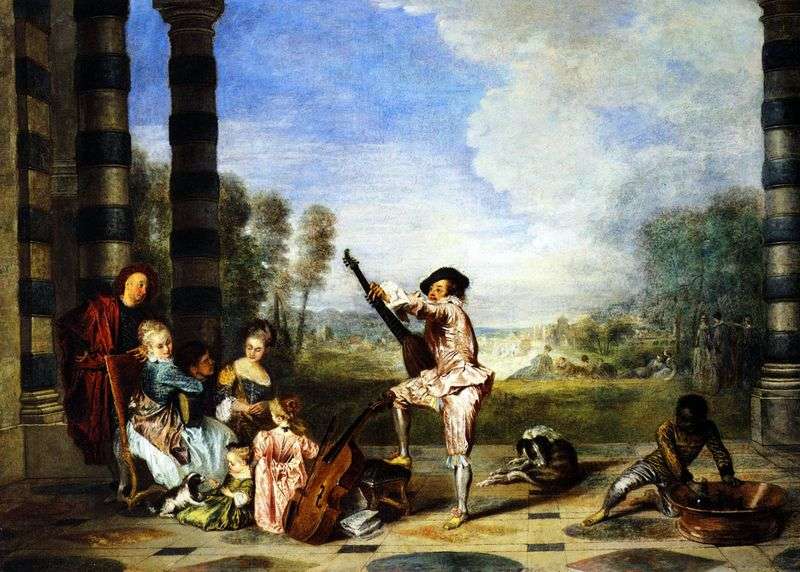 Joy of life by Jean Antoine Watteau
Joy of life by Jean Antoine Watteau